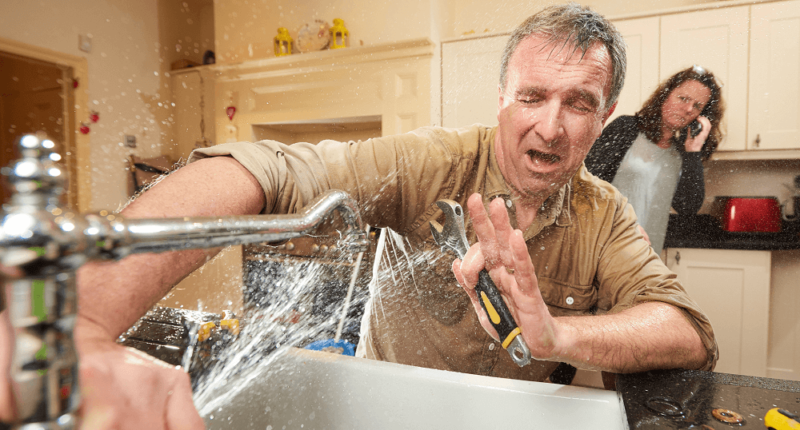Image Source: Google
As a homeowner, dealing with plumbing emergencies can be stressful, costly, and inconvenient. However, with some preventative measures and regular maintenance, you can avoid common plumbing issues and keep your home's plumbing system in top condition. In this article, we will provide expert advice on how to prevent common residential plumbing emergencies.
Regular Maintenance
1. Inspect for Leaks
- Check faucets, showerheads, and pipes for any signs of leaks.
- Look for water stains on walls and ceilings, as they can indicate hidden leaks.
- Inspect your water meter regularly for any unusual fluctuations, which may indicate a leak.
2. Clear Drains
- Avoid pouring grease, oil, and food scraps down the drain.
- Use drain strainers to catch hair and debris before they clog the pipes.
- Regularly flush drains with hot water and baking soda to prevent buildup.
Prevent Clogs
1. Be Mindful of What You Flush
- Avoid flushing anything other than toilet paper down the toilet.
- Dispose of cooking oils and grease in the trash instead of the sink.
- Use a hair catcher in the shower to prevent hair from clogging the drain.
2. Schedule Regular Drain Cleaning
- Consider hiring a professional plumber to perform regular drain cleaning.
- Professional drain cleaning can remove buildup and prevent clogs from forming.
- Regular maintenance can help identify potential issues before they become emergencies.
Protect Pipes
1. Insulate Pipes
- Insulate exposed pipes in cold areas of your home to prevent them from freezing.
- Frozen pipes can burst and cause extensive water damage.
- Use pipe insulation sleeves or heat tape to protect pipes during winter months.
2. Monitor Water Pressure
- High water pressure can put stress on your pipes and increase the risk of leaks and bursts.
- Install a water pressure regulator to keep water pressure at a safe level.
- Monitor your water pressure regularly and adjust as needed to prevent damage to your pipes.
Address Issues Promptly
1. Fix Leaks Immediately
- If you notice a leak, no matter how small, address it immediately to prevent further damage.
- Even a small leak can lead to mold growth, water damage, and increased water bills.
- Call a plumber to repair the leak professionally and ensure it does not recur.
2. Respond to Slow Drains
- If you notice a drain is slow to empty, address the issue before it becomes a complete clog.
- Try using a plunger or a drain snake to clear the blockage before it worsens.
- If the problem persists, contact a plumber to inspect and resolve the issue.
By following these expert tips and staying proactive about maintaining your home's plumbing system, you can avoid common residential plumbing emergencies and save yourself time, money, and stress in the long run.


